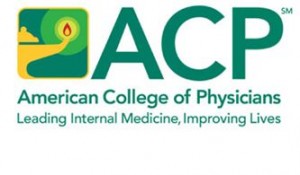 WASHINGTON — Recommendations on how to achieve health care equality for lesbian, gay, bisexual, and transgender (LGBT) patients were released today by the American College of Physicians (ACP). In “Lesbian, Gay, Bisexual, and Transgender Health Disparities: A Policy Position Paper from the American College of Physicians,” ACP calls for comprehensive transgender health care services included in health benefits plans and civil marriage rights for same-sex couples. The paper is published today in Annals of Internal Medicine.
WASHINGTON — Recommendations on how to achieve health care equality for lesbian, gay, bisexual, and transgender (LGBT) patients were released today by the American College of Physicians (ACP). In “Lesbian, Gay, Bisexual, and Transgender Health Disparities: A Policy Position Paper from the American College of Physicians,” ACP calls for comprehensive transgender health care services included in health benefits plans and civil marriage rights for same-sex couples. The paper is published today in Annals of Internal Medicine.
Evidence suggests that LGBT persons face a common set of challenges within the health care system. These challenges range from access to health care coverage and culturally competent care to state and federal policies that reinforce social stigma, marginalization, or discrimination.
“These policies often keep LGBT persons from accessing health care and are also associated with increased rates of anxiety, suicide, and substance or alcohol abuse. ACP is committed to improving the health of all Americans and opposes discrimination in the delivery of health care services,” noted Wayne J. Riley, MD, MPH, MBA, MACP, president of ACP. “ACP’s policy position paper aims to eliminate disparities in the quality of or access to health care for members of the LGBT community.”
ACP’s Health and Public Policy Committee reviewed published studies, reports, and surveys on LGBT health care and related health policy to inform its recommendations. Some of ACP’s key statements and recommendations are:











